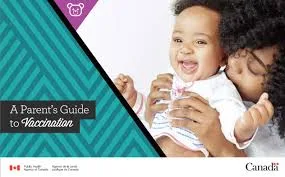Ottawa – Your child will need to be vaccinated at different times in their life to get the best protection against vaccine-preventable diseases. Vaccination schedules are designed to provide protection before children are likely to be exposed to the disease.
Vaccination schedules may be different depending on the province or territory you live in. No matter where you live in Canada, childhood vaccines are provided for free and offered according to your province or territory’s routine or catch-up schedules.
Your child will usually be vaccinated:
- between birth to 2 months
- at 4 months
- at 6 months
- at 12 months
- at 18 months
- between 4 to 6 years of age
Vaccine records
You can find out which vaccines your child has had by looking at their vaccine record. If your child doesn’t have one, contact their health care provider or your local public health unit to get one.
Everyone should maintain a vaccination history throughout their life. Keep it in a safe place and present it at every vaccination appointment so it can be updated. In some regions, your child’s vaccine record may be electronic. Whether you have a paper or electronic vaccine record, you should ensure it’s updated whenever your child receives a vaccine.
Who to talk to for vaccine advice
Talk to your child’s health care provider, local public health unit or pharmacist. They can provide you with more information about vaccines or direct you to sources of information about vaccines.
It’s important to get information about vaccines from reputable sources, like:
- A Teen’s Guide to Vaccination
- A Parent’s Guide to Vaccination
- Canadian Pediatric Society
- Vaccines and immunization (World Health Organization)
Some sources may contain information that’s untrue, unclear or misleading (misinformation). There are resources to help you identify sources that may not be reliable or information that may not be true.
How to identify misinformation online
Where to get vaccinated
To find out where you can get your child vaccinated, you can:
- contact a health care provider
- search the internet or your local phone book for your nearest public health office (CLSC in Quebec) and contact them
Provincial and territorial immunization resources
Receiving a COVID-19 vaccine at the same time as routine childhood vaccines
Children can receive multiple vaccines at the same time. Children 6 months of age and older can receive routine vaccines at the same time as the COVID-19 and flu vaccines.
This makes it easier to stay up to date on recommended childhood vaccines by reducing the number of appointments needed.
Learn more about:
Travel vaccinations
When you travel, you may come in contact with diseases that aren’t common in Canada. Talk to a qualified travel health provider or visit a travel health clinic at least 6 weeks before you and your child are scheduled to travel. They might recommend you and your child receive specific vaccinations based on your destination.
Travel vaccination advice and information
What to do for a missing vaccination
If your child hasn’t received all recommended vaccines for their age, they can still catch up.
Talk to your child’s health care provider or your local public health unit to discuss:
- which vaccines your child has already had
- which ones they still need
- when and where to get them
What to do if you move to another province or territory
Vaccine schedules may differ depending on your province or territory. If you move to another province or territory, contact your child’s new health care provider or your new local public health unit. They will let you know which vaccines your child may need.
Bring your child’s vaccine record to your appointment so that the health care provider knows which vaccines your child has already had.
What to do if your child is immunocompromised
Immunocompromised means that the immune system may be weakened due to:
- a health condition
- certain medications
Children who are immunocompromised may not be able to receive certain vaccines or the vaccines may not work as well for them. It’s very important for people who live with or have close contact with a child who’s immunocompromised to stay up to date with their own vaccines to help protect the child. Talk to your child’s health care provider or local public health unit about how to help keep your child protected.








